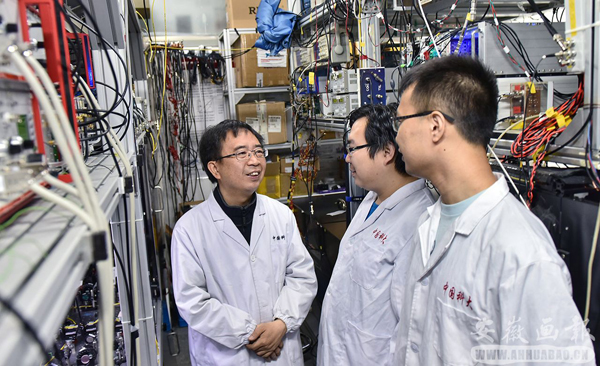Pan Jianwei, world-leading Chinese quantum scientist

Pan Jianwei, a world-leading Chinese quantum scientist. [Photo provided to chinadaily.com.cn]
Pan Jianwei, a professor and doctoral supervisor of the University of Science and Technology of China (USTC), is an academician of the Chinese Academy of Sciences (CAS) and a member of the 12th Central Committee of the Jiusan Society.
He serves as the executive president of USTC and the chief scientist for China and CAS’ quantum-science satellite project. In December 2017, he was listed among the world’s top 10 scientific figures by Nature, an international science journal, and was honored as the “father of quantum”.
On May 3, 2017, the world’s first ever optical quantum computer, the fastest so far, was invented by Pan and his colleagues including Lu Chaoyang and Zhu Xiaobo as well as a research team led by Wang Haohua from Zhejiang University.

According to Pan, a computer made by China that exceeds the fastest supercomputer in the world is expected by 2020. He compares the speed between the quantum computers and traditional computers to “nuclear weapons” and “machine guns and artillery shells.”
Pan Jianwei has made innovative contributions to the research of quantum communication and is a world famous scholar in the field. His research on quantum teleportation was selected as one of the top ten scientific and technological outcomes of the year in the American journal Science.
Together with the discovery of X-rays by Rontgen and the establishment of Einstein's theory of relativity, his academic findings were listed among "21 classical papers on physics in the past century" by Nature.
On Jan 10, 2017, Hefei was approved to build a comprehensive state-level science center. As the core area of the center, the Hefei National High-tech Industry Development Zone has expanded its presence as the “China Speech Valley and Quantum Center”, a tribute to its competitiveness in the technological achievements and industrialization of quantum information, voice and artificial intelligence.
Pan appreciates the support of the Hefei high-tech zone received since he established a company there in 2009. In addition to Pan, another two academicians -- Du Jiangfeng and Guo Guangcan -- also set up their businesses in the zone.
Pan’s team has attracted a group of projects in the zone and construction of the National Laboratory of Quantum Information and a USTC high- tech zone will begin soon.



